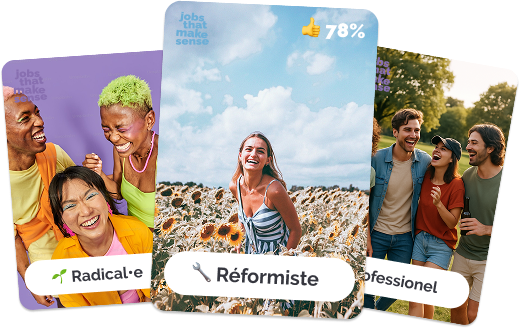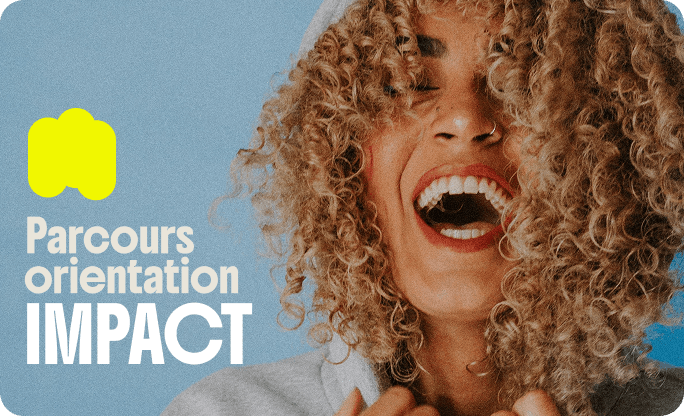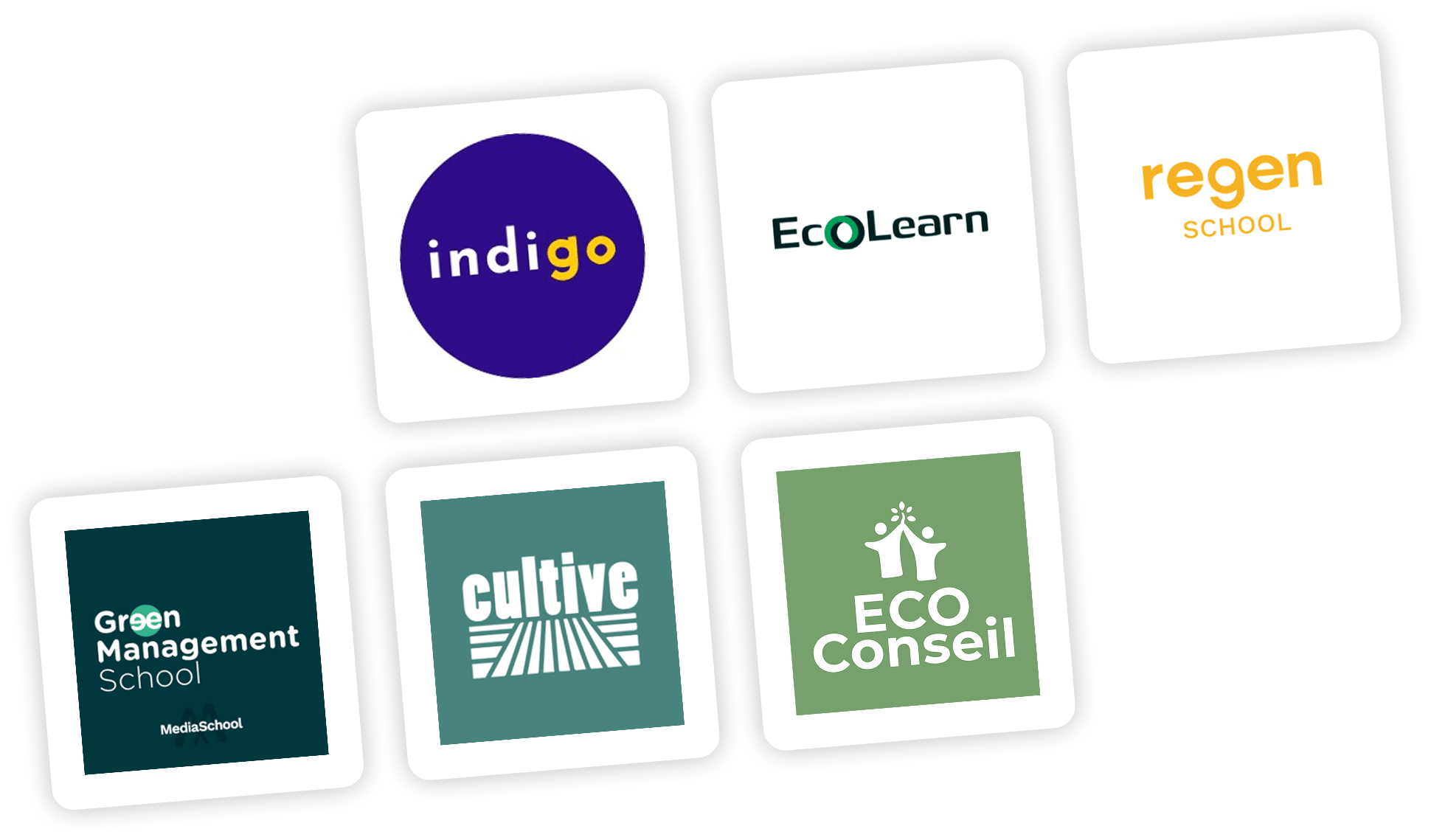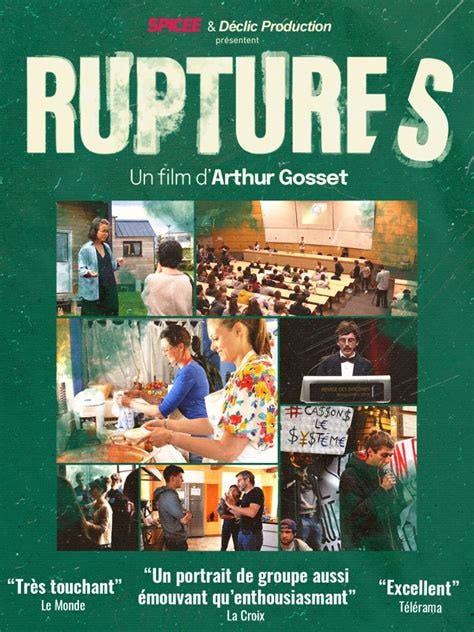Arthur Gosset - A breakthrough engineer
Following in the footsteps of AgroParisTech and Ensat, former Polytechnique graduates are now calling for the polluting companies not to follow in their footsteps. In October 2023, they mobilized at their school's forum, which was attended by representatives of these companies. At the same time, Hélène Cloître and Arthur Gosset organized the "Séisme Grand Ouest des métiers à impact" forum in Rennes;
We met Arthur, a Centrale Nantes graduate. He tells us about his journey from his first realizations to Séisme, via the creation of the documentary Rupture(s) in 2018, in which he presents these young people who turn their backs on a well-trodden path;
Who is Arthur Gosset? Why did this engineer choose to break with the past? How do his studies help him in his current commitment? Arthur's microphone 🎤
When did you first become aware of ecological issues?
"Even before I went to engineering school, I was fascinated by the beauty and wonder of nature and animals. In fact, I was involved in saving marine mammals. But I didn't understand what was at stake, or what was going on. From an individual point of view, I continued to have a lot of inconsistencies, traveling right and left, consuming a lot. I wasn't making the connection between saving the environment and my impact as an individual. Instead, I approached things through sensitivity and beauty. In 2017, I'm starting to become aware of ecological issues, particularly through a scientific approach. For me, it's time to talk about it."
How did you tackle the problem?
"For me, we had to talk about it in schools. So, with two friends, we co-founded the Together for Earth association, to raise awareness and mobilize school administrations and students around environmental issues. The aim was to build bridges between schools (business, engineering, Sciences Po...). To cite just a few actions: there were waste pick-ups or workshops on systemics, for example. In the space of 1? years, we had set up around fifty hubs in France, in different schools. We got together twice a year with other student ambassadors."
What have you gained from your involvement with associations?
"Very much so. I owe 80% of what I have to my involvement with associations. Beyond getting information and training together, with the Together For Earth student ambassadors, we fed off each other. It was a powerful collective! Everyone read reports, watched videos, attended conferences... My involvement made me more aware of the issues and ways of getting involved. And I wasn't alone. When you become aware of a problem in your own corner, you can find yourself a bit alone, but getting involved in associations helps to counter that. And then, alongside Together for Earth, in 2018, other collectives are being set up, like Le manifeste étudiant Pour Un Réveil Écologique, which we also worked with."
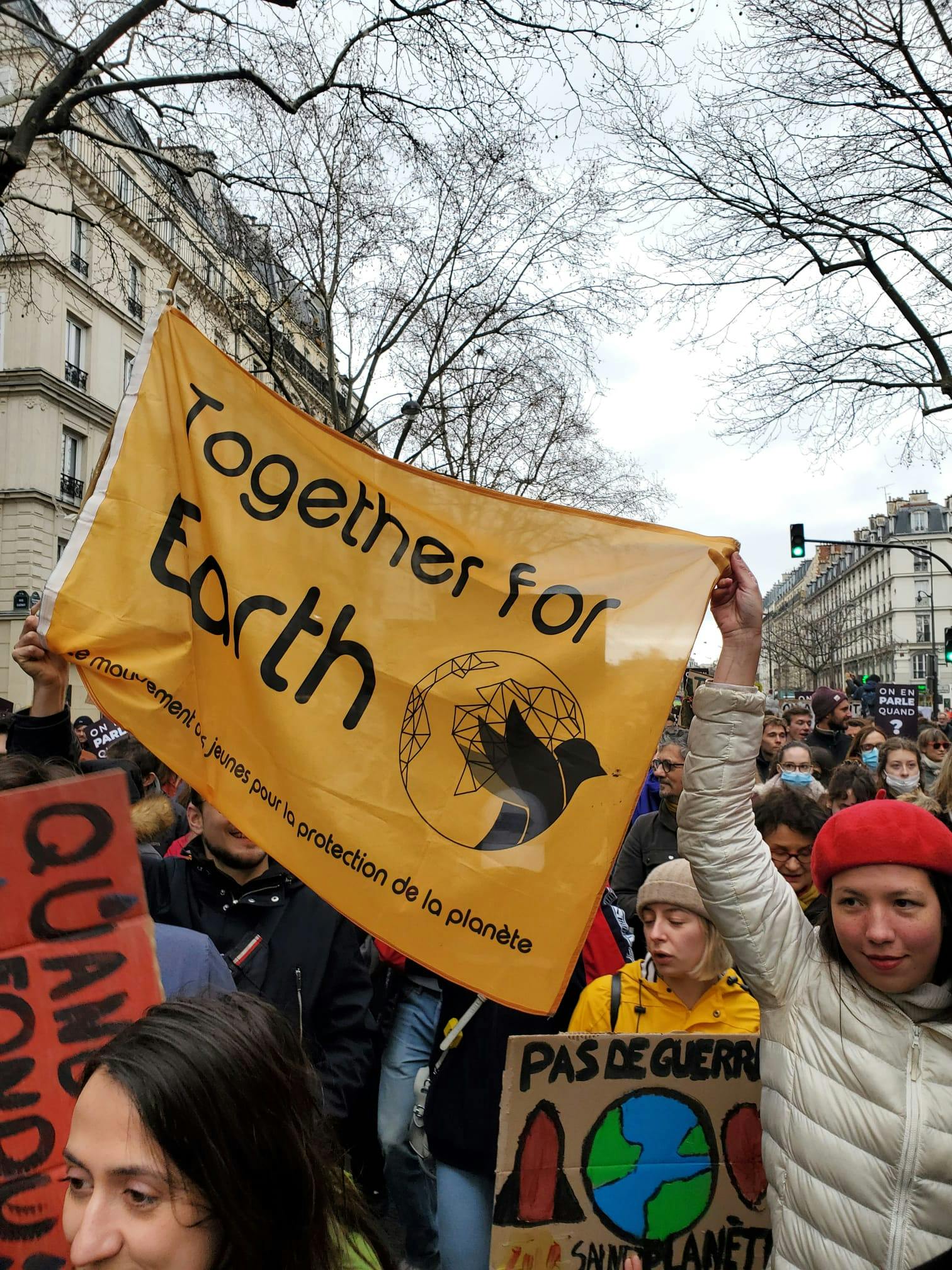
After 2 years at Centrale Nantes, Arthur is taking a year off. He feels he has a choice between continuing with Together for Earth, or exploring other ways of getting involved. With 1 year ahead of him, he could do whatever he wanted. A chance he seized to make a documentary on young graduates' quest for meaning and impact: Rupture(s).
After Rupture(s), what happened?
"In parallel with my final year of studies in England, I'm editing the documentary. During this year, I'm specializing in environmental engineering to study the management of Man's impact on his environment (water management, waste management...). The film will be released in September 2021, and with Hélène, my partner on the documentary project, we'll be touring the Rupture(s) site for a year and a half in France. After this project, we founded the Séisme association, to continue to work on these issues. Our angle of attack is to respond to this problem: how to make a concrete commitment to one's work, whatever one's training? The first step, via Séisme, was to set up a forum for impact-driven professions, to counter the traditional recruitment forums in schools, featuring mainly major groups who are all about greenwashing."
What about your engineering studies? What are you doing?
"My years of study taught me a lot about how to understand the world. All the skills I learned during my Master's degree in environmental engineering are useful to me today. Being an engineer is a way of thinking. You're trained to think systemically about the problems that exist, and the idea is to understand how you're going to find a solution. I ask myself how I can change things, always trying to think systemically about the ecological emergency. So I always have this engineer's posture, even if I don't practice it from a technical point of view."
You don't seem to like fitting into boxes? True or False?
"I don't know if it's a good thing or a bad thing but, yes, I don't want to fit into any boxes. The system works very well because there's this brainwashing that companies have. There's a whole culture designed to convince you that what you're doing is great. Even if there's this thing about wanting to change things from within, if you don't manage to question yourself on a daily basis about your place in this structure and what it represents, you can quickly fall into this corporate culture, which will convince you that what you're doing is good. The point of our second documentary is precisely to ask the question: "Can we change things from within?" For the moment, the answer is hyper-complex... Not everything is black and white."
How do you manage financially with Hélène?
"When the film came out, we lived from day to day with the tour. We were able to pay ourselves that way. We were able to put money aside and live off the first few months of the association's creation. Alongside the association, we've been working on another project to earn money, which is training job seekers in ecological issues. It's both a training course and a test of people's ecological skills. The idea is to enable companies to recruit engineers with specialized skills in these areas, for example. In concrete terms, things are a bit tight right now, but I'm not too worried, because I've got my diploma. If it wasn't us privileged people with diplomas who dared to think outside the box, who would? When you have a recognized diploma, you have freedom of mind, you can afford things. I do it for myself, but also because I feel I have a huge responsibility. I'm extremely lucky to have been born into a family with a high social status. I grew up with a silver spoon in my mouth. If I don't dare to change things on my own scale, who else can?"
How does what you're doing today make sense to you?
"There are times when I'm questioning myself and doubting myself enormously. After an event like Forum Séisme, I hear the feedback, the fallout, and I tell myself I've done something useful. In my opinion, there's an enormous urgency for people to move towards impact. If tomorrow, more and more of us collectively contribute our skills and know-how to building a fairer, more sustainable society, we'll be exerting strong economic pressure on today's businesses. So, of course, there are various possible actions. I chose employment. There's also research, politics and activism. For me, employment is a means of exerting economic pressure, because if companies find it hard to recruit tomorrow, it means that their business model can't be as profitable as they'd like. So they'll have to question themselves, adapt or die. That's where I find meaning. If I can get some people to change their outlook and use their 100,000 hours of work for something else, that will be my success."
You have doubts. Can you talk about it?
"When I see videos with hundreds of thousands of views, adopting the codes of hyper-consumption, and which are so far removed from what we want to convey, sometimes it holds me back. At times like this, I say to myself: What's the point? These are such antagonistic discourses, visions of success so far removed from what we're trying to push... What's the point in fighting these thoughts?
Doubting, on the other hand, allows me to always question what I'm doing and where I am in society. "Am I in the right place? "Can't I go somewhere else?" Not to doubt would also mean "to be convinced of the way you're committing yourself", when we're in such a moving world. The risk of doubt can push you into a form of permanent dissatisfaction. I often say to myself, "You can always do more in the face of urgency;
But doubt is natural and talking about it deconstructs a lot of things. I've got quite a few friends around me who don't ask themselves any questions, and seeing them also de facto puts me on the sidelines. I see them building lots of things: buying apartments, putting money aside... it creates a gap. On the other hand, I have my commitment buddies, and there I know I'm not alone.
When you signed up, what did you give up?
"I've given up dedicating my time and energy to the destruction of societies and biodiversity, to the widening of inequalities and to the enrichment of certain individuals at the expense of others. Of course, there are many things in my daily life that make me a part of this. I'm part of the economy, so I contribute to it, but I try to ensure that at least 50% of the time I spend every day has a positive impact."
"I gave up making a very good living by having a socially validated job, where in return I'm not asked to ask myself too many questions about what I do. In fact, I feel I've opened a lot more doors for myself than the things I gave up. At the Séisme forum, all the encounters, the joy that comes out of it, the enthusiasm, the hope, the fact of feeling useful, it's so satisfying. I try to do what I can;
"On the other hand, I haven't given up my degree. It gives me mental security."
What advice can you give to engineers who'd like to do it but don't dare?
"Remember who you are. What is it to be an engineer? It's elitism. We're privileged because of these diplomas, whatever our background. This diploma is worth its weight in gold, and it's very reassuring to think so. On the job market, there's no point in being afraid, telling yourself that if you don't tick all the boxes, you won't be able to get a good job. For me, what counts is conviction and motivation. I know that tomorrow, if I want to work in a wastewater treatment plant, I'm sure I'll find what I'm looking for. When you're an engineer, you're an engineer for life. Once again, it's a way of seeing things, and you keep that for life."
What is your relationship with success?
"Contribute to the common good by having a personal balance, where you can spend time with the people you love. Personal balance also means financial balance;
As far as I'm concerned, there's an urgent need to redefine social status, and above all status as a vector of success. I'm more in awe of my engineer buddy who's blocking the construction of the A69 in Toulouse, than another buddy who, at 28, manages 3,000 people in a car company. From a social point of view, reversing the vision of success would be huge."
How are you feeling today?
"I feel good about who I am. I feel like I still need to find my place, but I feel good."
To take action
👉 Find all job offers, testimonials, training and inspiring articles on ingesdavenir.org
Further information
👉 You can watch the documentary film Rupture(s) on the Spicee platform.
👉 Olivier Lefebvre - "il est difficile de sortir de sa cage dorée"
